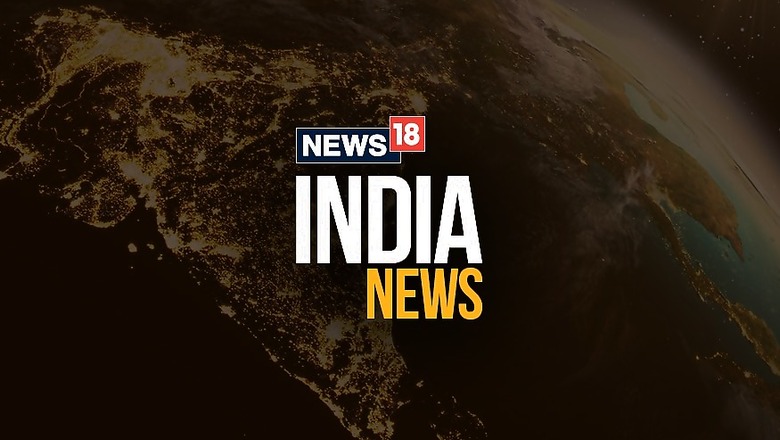
views
Ottawa, Feb 14 (AP) Canadian Prime Minister Justin Trudeau’s government weighed whether to invoke emergency powers Monday to quell the protests by demonstrators who have paralysed Ottawa and blocked border crossings in anger over the country’s COVID-19 restrictions. The prime minister met virtually with the leaders of Canada’s provinces during the day and planned to address the nation Monday night.
This is the biggest, greatest, most severe test Trudeau has faced,” said Wesley Wark, a University of Ottawa professor and national security expert. For more than two weeks, hundreds and sometimes thousands of protesters in trucks and other vehicles have clogged the streets of Ottawa, the capital, railing against vaccine mandates for truckers and other COVID-19 precautions and condemning Trudeau’s Liberal government.
Members of the self-styled Freedom Convoy have also blockaded various U.S.-Canadian border crossings, though the busiest and most important the Ambassador Bridge connecting Windsor, Ontario, to Detroit was reopened on Sunday after police arrested the last of the demonstrators and broke the nearly week-long siege that had disrupted auto production in both countries. In recent days, the prime minister rejected calls to use the military but said all options are on the table to end the protests, including invoking the Emergencies Act, which gives the government broad powers.
Our government is prepared to do what is required to uphold the rule of law and to restore order in our communities and in particular to protect critical infrastructure, particularly at our borders, Emergency Preparedness Minister Bill Blair said when asked Monday about whether the Emergencies Act should be invoked. In other developments, the Royal Canadian Mounted Police said they arrested 11 people at the blockaded border crossing at Coutts, Alberta, opposite Montana, after learning of a cache of guns and ammunition.
Police said a small group within the protest was said to have a willingness to use force against the police if any attempts were made to disrupt the blockade. Authorities seized 13 long guns, handguns, sets of body armor, a machete, a large quantity of ammunition and high-capacity magazines. Alberta Premier Jason Kenney also said protesters in a tractor and a heavy-duty truck tried to ram a police vehicle at Coutts on Sunday night and fled. This is extremely concerning, he said. “There is, at least in that case, a small cell of people who wanted to take this in a very dangerous and dark direction.
Over the past weeks, authorities have hesitated to move against the protesters around the country. Local officials cited a lack of police manpower and fears of violence, while provincial and federal authorities disagreed over who had responsibility for quelling the unrest. Invoking the Emergencies Act would allow the federal government to declare the Ottawa protest illegal and clear it out by such means as towing vehicles, Wark said. It would also enable the government to make greater use of the Mounties, the federal police agency.
An earlier version of the Emergencies Act, called the War Measures Act, was used just once during peacetime, by Trudeau’s late father, Prime Minister Pierre Trudeau, to deal with a militant Quebec independence movement in 1970. Invoking emergency powers would be “a signal to both Canadians across the country and also an important signal to allies like the United States and around the world who are wondering what the hell is Canada been up to, Wark said.
The demonstrations have inspired similar convoys in France, New Zealand and the Netherlands. U.S. authorities have said that truck convoys may be in the works in the United States. Also Monday, Ontario’s premier Doug Ford announced that on March 1, Canada’s most populous province will lift its requirement that people show proof of vaccination to get into restaurants, restaurants, gyms and sporting events. A surge of cases caused by the omicron variant has crested in Canada.
Let me very clear: We are moving in this direction because it is safe to do so. Today’s announcement is not because of what’s happening in Ottawa or Windsor but despite it, Ford said. The province will also remove its 50% capacity limit on restaurants on Thursday, four days earlier than planned. Ford gave no timetable for dropping the requirement that people wear masks in public places.
Ford said he would support Trudeau’s government if it proposed further measures to quell the protests. We need law and order. Our country is at risk now. It’s not just not happening here in Ottawa, but it’s happening in Alberta and British Columbia, Ford said. We won’t accept. it (AP) .
Disclaimer: This post has been auto-published from an agency feed without any modifications to the text and has not been reviewed by an editor
Read all the Latest India News here


















Comments
0 comment